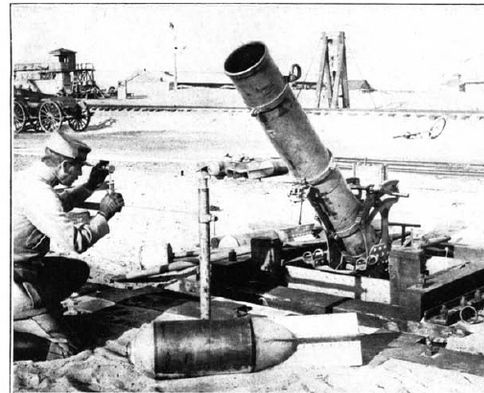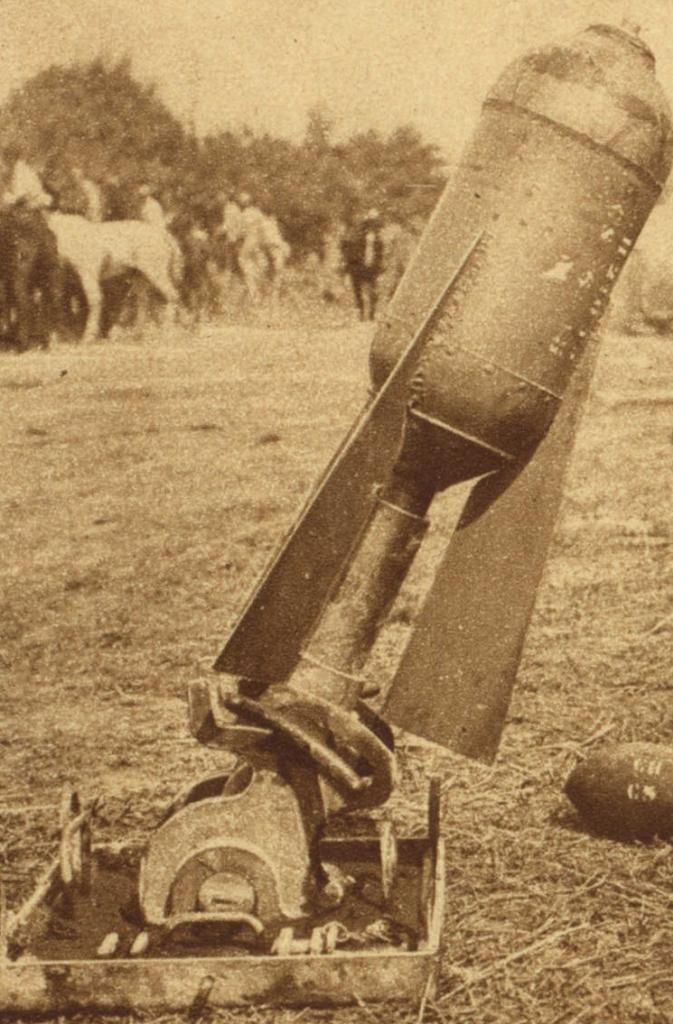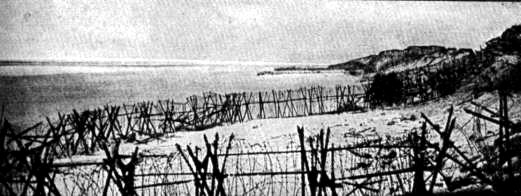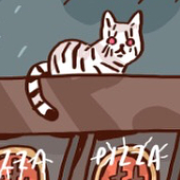|
Thehy're also not planned networks so much as just the result of large armies stalemating next to each other. The thing to remember is that the trenches don't start out 100 yards from each other - that's a "it's 1917 and this is contested as gently caress ground" thing not a 1914 thing. When the army isn't moving you've got guys digging fallback positions to minimize the impact of any front line assaults or breakthroughs, and eventually those get linked up to the front line guys who are slowly linking together little 4 and 5 man slit trenches and individual foxholes. Yesterday's forward observation post gets a communications trench dug out to it and gets expanded into today's full blown forward position, and by next year that's linked in with 4 more to form the new front line. A few years of that, plus a few million artillery shells, and you end up with the crazy parallel trench networks that reach for kilometers into the rear, butt relatively close up on each other, and have cleared land between them. It's also worth noting that not everywhere on the western front was lucky (?) enough to have a good, solid trench network. The ones where the guys are chilling in eight foot deep trenches with firing platforms and wood reinforcements with dugouts that reach 5 meters or more into the earth only happened where the ground was at least reasonably firm. If you were stuck in boggy lowland like Flanders, your "trench" might only be a meter or so deep, not really connected into anything else, and full of mud. Hold the high ground? Great, that ridge you're on is probably something you can dig into and by definition you've got at least a few meters of dirt between you and the water table. Sucks for the other guy in the swamp next to you. Just GIS "ww1 trench" to get an idea of the diversity in quality that we're talking about here. You run the gamut from this:  to this:  And there are plenty of examples of even shittier looking trenches, especially if you're a brit.
|
|
|
|

|
| # ? May 27, 2024 18:49 |
|
Ensign Expendable posted:Infantry manuals show how to dig while prone.  (I think they just found the soldier wasted and placed a shovel into his hand, but eh it does the job) The principle being, first you dig shallow holes, then you dig deeper...  ...and finally you connect the dots! (Translations and actual measurements may vary. No refunds.) 
|
|
|
|
What I find weirder to contemplate are the two ends of the line. What it was like to be the last soldier before the sea, or right up on the Swiss Border.
|
|
|
|
Alchenar posted:What I find weirder to contemplate are the two ends of the line. What it was like to be the last soldier before the sea, or right up on the Swiss Border. If you're on the ocean end, at least you cant get flanked from that side.
|
|
|
|
Alchenar posted:What I find weirder to contemplate are the two ends of the line. What it was like to be the last soldier before the sea, or right up on the Swiss Border. It's not like the line just completely ended at the Channel, otherwise the enemy could attempt sending infiltrators on a boat at night or something. The same with the Swiss border, I think. Actually how well prepared was the Swiss army against territorial violations during the world wars?
|
|
|
|
MrYenko posted:If you're on the ocean end, at least you cant get flanked from that side. Yes but what does that mean? Do you go right onto the sand? Does your trench get flooded at high tide?
|
|
|
|
Well they broke the floodgates in that region right at the outset of the war so chances are your trench is flooded at low tide too. and thanks everyone for the responses re: logistics, that makes sense.
|
|
|
|
Something else to remember is that in areas with a high water table, if you had enough time your engineers could build something called a breastwork, which is like a trench except you construct it upwards instead of digging it downwards.Alchenar posted:What I find weirder to contemplate are the two ends of the line. What it was like to be the last soldier before the sea, or right up on the Swiss Border. There's a great bit in one of the Lyn Macdonald books from a BEF officer who did actually spend some of his time occupying the very last length of line before the coast, and how he always made a point when he did his rounds every day to go right up to the end so he could say he was the last/first man on the Western Front. IIRC there was some impassable marshland covering the last ~500 yards between the end of the line and the sea. I'll see if I can dig it out. edit: apparently it's just a reference rather than a quotation, but if you want to track the man down, you're looking for Lt Paddy King of the 2/5th East Lancashires, stationed at Nieuport in summer 1917, in the period between blowing up Messines Ridge and the start of Third Ypres proper: quote:The land beyond Dixmude petered out into impassable swamp, where the situation had been static ever since King Albert had ordered the floodgates of the canals to be opened in 1914, in a last, desperate effort to stem the German advance. So the waters spread over a large area of land, a stagnant, insurmountable barrier between the opposing armies, although the Allies had managed to retain a toehold around the coastal town of Nieuport. Nieuport was literally the end of the line. On his daily inspection of the trenches, 2nd Lt "Paddy" King of the 2/5th East Lancashire Regiment always made a point of going right to the end of the very last trench which abutted on the beach. It appealed to his sense of humour to feel that, for a few seconds at least, he was the last man on the Western Front. At such moments, in that time of misunderstanding and confusion before the offensive, he was probably the only man on the Western Front who knew exactly where he was and what he was doing. Trin Tragula fucked around with this message at 16:47 on Aug 21, 2014 |
|
|
|
Nenonen posted:It's not like the line just completely ended at the Channel, otherwise the enemy could attempt sending infiltrators on a boat at night or something. The same with the Swiss border, I think. Actually how well prepared was the Swiss army against territorial violations during the world wars? The Swiss weren't particularly well prepared for anything but the terrain made the area virtually unusable by anyone wanting to conduct any strategic movements through the area. There was never enough incentive for any side to violate the Swiss in either war since you'd be marching through there by company with no armor or guns or anything. also good loving god digging holes is horrible
|
|
|
|
bewbies posted:The Swiss weren't particularly well prepared for anything but the terrain made the area virtually unusable by anyone wanting to conduct any strategic movements through the area. There was never enough incentive for any side to violate the Swiss in either war since you'd be marching through there by company with no armor or guns or anything. They mobilized (one of the few cases in WWI where mobilization didn't bring a country into the war) and had 200k men waiting by mid-August 1914. If the Germans or the French had really really wanted to go through Switzerland they probably could have done it but why do that when you have Belgium?
|
|
|
|
Fangz posted:Yes but what does that mean? Do you go right onto the sand? Does your trench get flooded at high tide? "Wikipedia, First Ypres posted:
|
|
|
|
I think I remember reading that the first proper fighter the Swiss Air Force acquired was a plane they captured from a german pilot that landed there.
|
|
|
|
Ok, that makes sense that they're fallback trenches that got expanded. I just had a hard time picturing a dude shovelling for five hours while getting shot at. And the guy on the end of line is really cool. Was it an unbroken line of trenches running north south, or were there big gaps between sections.
|
|
|
|
Rockopolis posted:Ok, that makes sense that they're fallback trenches that got expanded. I just had a hard time picturing a dude shovelling for five hours while getting shot at. I distinctly recall Ernst Jünger describing how he had/volunteered to lead a patrol to cover the distance between two distinct trench sections.
|
|
|
|
The start of the front line, right on the Swiss border, is known as the "Kilomčtre Zéro". A memorial route was opened there this year, with various bunkers, trenches and observation posts that can be visited. Here are some pictures of the area, taken from this gallery.  A situation map.  Shortly before the war, 2 French, 2 German and 2 Swiss soldiers had their picture taken while on leave.  A German trench in the area.  German soldiers and Swiss soldiers.  A French officer and Swiss soldiers.  The main Swiss observation post.  An other observation post. And here's an article with a gallery of postcards from the war that I found while looking for the above pictures : http://www.24heures.ch/culture/vie-soldats-suisses-frontieres-1418/story/16560833?track
|
|
|
|
ArchangeI posted:They mobilized (one of the few cases in WWI where mobilization didn't bring a country into the war) and had 200k men waiting by mid-August 1914. If the Germans or the French had really really wanted to go through Switzerland they probably could have done it but why do that when you have Belgium? IIRC Sweden and Norway also mobilized their navy. Not sure about ground forces but a full invasion of Scandinavia was unlikely anyway, it's the territorial waters at North Sea and Baltic Sea that were at risk of being violated.
|
|
|
|
In theory you could have put a bloke at the Swiss border and he could then walk from Switzerland to Nieuport, trenches all the way. In practice, of course shells and mortars can knock trenches in, and units get dislodged to inferior positions, and then an attack happens and some blokes are left cowering in shell-holes for a month, trying to hang on long enough for the heat to die down enough for the engineers to come up in force and dig them a new proper front line, and rivers and forests happen. There's something from the Wipers Times that illustrates just how powerful even trench mortars became as the war dragged on; this is from the recurring column "Verbatim Summaries of Intelligence Reports". It probably helps to know that the Flying Pig is a 9.45 inch quote:At 1.0 p.m. the "Flying Pig" dropped a round in our front line at (map reference). The trench was completely wrecked, the crater formed being 14 feet deep and 25 feet across. It is consoling to think that over 40 rounds have been fired from this gun into the enemy trenches during the last week. The editor then comments "Very consoling to the P.B.I."
|
|
|
|
Flying Pig And holy gently caress flying cow 
|
|
|
|
The thing that you have to remember about those trench mortars is that they were, compared to artillery of the same diameter, pretty much pure HE. The stresses of being fired are completely different, so they could get by with much thinner shell walls which leads to really crazy payloads.
|
|
|
|
What was their range?
|
|
|
|
In the hundreds of feet, something that heavy isn't going anywhere far without a rocket motor or much larger gun behind it.
|
|
|
|
That flying cow is less of a mortar and more of a massively oversized rifle grenade.
|
|
|
|
Noosphere posted:
A hex wargame like none before!
|
|
|
|
Trin Tragula posted:The editor then comments "Very consoling to the P.B.I." P.B.I.? I'm guessing that means something like "poor bastard infantry".
|
|
|
|
AATREK CURES KIDS posted:P.B.I.? I'm guessing that means something like "poor bastard infantry". Poor Bloody Infantry
|
|
|
|
Raskolnikov38 posted:In the hundreds of feet, something that heavy isn't going anywhere far without a rocket motor or much larger gun behind it. And that's why they're called "trench" mortars, their range was so short that they had to be fired from the trenches (rather than the artillery's usual, rather more comfortable positions back behind the nearest hill) before they could hit anything worth hitting. In some ways, the Flying Pig's existence is kind of like if Hitler had actually succeeded in fielding the Ratte in large numbers; it needed to be broken down to travel and all its bits and bobs loaded onto multiple carts, then hauled up the line and reassembled in situ. Once functioning it could then in an emergency situation fire one ludicrously destructive projectile every few minutes or so, the usual rate of fire being rather less on account of either the chronic shortage of ammunition or the disinclination of its operators to annoy the enemy and risk drawing a response (delete as appropriate). All this faff made it mostly useless in any kind of mobile situation, such as "being attacked" or "going on the offensive", although it was very good for blowing up dugouts and pillboxes located near the enemy's front line before an attack was due. Considering that the whole point of a trench mortar is that (unlike a gun) it's supposed to be small, simple, flexible and easily portable... By comparison, the 3-inch Stokes mortar could be carried anywhere by a pair of idiots, set up quickly in a small hole, and it could then fire 20-odd rounds per minute in an emergency and 6 rounds per minute on a sustained basis, at a range of some 800 yards (nearly double that of the Flying Pig, although its projectiles were of course far less destructive). A hell of a lot of the pain suffered by the Allies in the early going can be directly attributed to going into the war without any kind of mortar capability, while the Germans had a healthy allotment of the famous 25-cm Minenwerfer (which the Stokes was a direct answer to), quickly nicknamed Minnie. Trin Tragula fucked around with this message at 22:09 on Aug 21, 2014 |
|
|
|
Trin Tragula posted:By comparison, the 3-inch Stokes mortar could be carried anywhere by a pair of idiots, set up quickly in a small hole, and it could then fire 20-odd rounds per minute in an emergency and 6 rounds per minute on a sustained basis, at a range of some 800 yards (nearly double that of the Flying Pig, although its projectiles were of course far less destructive).
|
|
|
|
I have a question about the first world war. What was the objective of Germany in starting a war? Were they seeking to take particular lands or something? Or was it more a vague notion of the Germans seeing the current status quo in europe as untenable, being sandwiched between great powers and all, and sought to shake things up a bit and hope they finished up with something more conducive to their interests at the end of it? Did they want to become a colonial player? Something else entirely?
|
|
|
|
Russia was a European backwater for a long time but their industrialization started gaining speed in the late 19th century as captains of industry like the Nobel bros made a dime with Caspian oil and such. Thus Germany needed to assert themselves in the coming years or Russia would catch and pass them in industrialization.
|
|
|
|
Gough Suppressant posted:I have a question about the first world war. What was the objective of Germany in starting a war? Were they seeking to take particular lands or something? Or was it more a vague notion of the Germans seeing the current status quo in europe as untenable, being sandwiched between great powers and all, and sought to shake things up a bit and hope they finished up with something more conducive to their interests at the end of it? Did they want to become a colonial player? Something else entirely? The core objective of most of the nations in participating in WWI was to live up to their alliance commitments. Though there were certainly plenty of benefits to being on the winning side. In simplified form: The Serbs fired the first shot. Austro-Hungary wanted to punish the Serbs. Russia promised to protect the Serbs. So Russia and Austro-Hungary are at war. Germany was in alliance with Austro-Hungary. So Germany and Russia are at war. France was in alliance with Russia. So France is at war with Austro-Hungary and Germany. Germany had to go through Belgium. So Germany is at war with Belgium. Britain guaranteed the neutrality of Belgium. So Britain is now at war with Germany. While German militarists did exist, the whole idea of 'Germany started the war' is kinda a fiction started by their enemies. Everyone started the war.
|
|
|
|
They wanted to suppress France again. France had managed to bounce back even after the penalties leveled against it after 1870, and they wanted to try that again, possibly with a more heavy-handed peace this time. I don't know if they had specific designs against Russia, perhaps seizure of more Polish land either as a direct conquest or as a buffer satellite, but regardless, any war against France or with Austria-Hungary against Serbia (or both, in the event) would involve Russia, and the Germans were afraid that the Russians were going to outpace them by 1916-1917. EDIT: Fangz says it a bit better. If it seems like Germany didn't really have solid war aims that's because they kinda sorta didn't besides "those other guys are allied against us and we need to work with OUR allies beat them once this train gets rolling"
|
|
|
|
Gough Suppressant posted:I have a question about the first world war. What was the objective of Germany in starting a war? Were they seeking to take particular lands or something? Or was it more a vague notion of the Germans seeing the current status quo in europe as untenable, being sandwiched between great powers and all, and sought to shake things up a bit and hope they finished up with something more conducive to their interests at the end of it? Did they want to become a colonial player? Something else entirely? It's partly being hemmed in. Going back to the decades prior to WWI, you've got Germany as this newly-formed industrial juggernaut on the continent. They want respect and a place at the table that they feel is due to them from the other major powers. When they get rebuked, they sought out the other ways to prove themselves worthy (arms races, rapid industrialization, colonialism). Wrap this zeitgeist of escalation with the new alliance systems being created and you've got blocks of nations with huge stockpiles of military gear waiting for something like Ferdinand in Sarajevo. Note: I'm not trying to deflect everything Germany did as being the responsibility of the older European powers. Germany was aggressively put together (via Bismark's wars) and was an instant major force on the continent. The entire attitude of these societies leading up to WWI in the decades prior allowed for the military build-ups, animosity, and casual attitudes towards war that were the foundation of WWI. That all said, Germany hitched itself to Austria-Hungary and, for better or worse, knew that if war would break-out, there was only a couple of ways it would play out. It was a given that they'd be sandwiched between France and Russia and so their war plan involved preventing a two front war at all costs. Hence, the schlieffen plan.
|
|
|
|
Germany did have some pretty clear war aims and they centered around 'reorganise power structures on the continent so that Germany is economically and politically top of the pile. e: Germany is also in a hemmed in position for a reason. Prussia was absolutely brutal in setting peace terms in 1870, which is why France ended up allied with Russia against it. Alchenar fucked around with this message at 15:28 on Aug 22, 2014 |
|
|
|
Alchenar posted:Germany did have some pretty clear war aims and they centered around 'reorganise power structures on the continent so that Germany is economically and politically top of the pile. Germany was already in some sense economically and politically top of the pile. I don't think you should confuse aims with 'why they entered the war'. Nations that win wars will always tend to try to extract as much as possible out of the victory, but I think that when they enter, it's more significant to consider what would happen if they *don't enter the war* as a more important causative factor. I think assigning direct culpability to a single party is really not valid for WWI. That said, overall, WWI was probably more of a war of choice for AustroHungary and Russia. Serbia ultimately didn't really matter. The significance of their actions was of preserving/gaining prestige more than anything. Germany and France, relatively, didn't really have much of a choice. If they didn't get involved, and the pro-German AustroHungarians, or the pro-France Russia *won*, the situation for these countries would have dramatically worsened, because they would be stuck on a continent full of strong hostile powers. (Of course, in the event, France didn't get to choose, but I doubt France would have really stayed out if Germany went for Russia.)
|
|
|
|
When Diplomacy Fails just finished up an excellent podcast series on The July Crisis that led to WW1. From what I got from it, Austria-Hungary wanted to crush Serbia to prevent their own empire from breaking apart. Germany then got sucked in, along with everyone else.
|
|
|
|
The question of Germany's aims going into WW1 and whether or not they had a coherantly expansionist foreign policy is a huuuuuuuuuuge debate in the historical community that's been on a low simmer with occasionally gassy outbursts since he 60s. At this point it's more or less settled into "yes" and "no" camps moreso than really developed into a stable consensus. I did a bunch of effort posts on this a few (dozen at this point?) pages back and don't want to repeat myself, but the tl;dr is to google the "Fischer controversy" if you want more information on it. I highly, highly recommend that anyone with even a passing interest in German foreign policy before and during the opening months of WW1 read Fischer's Germany's War Aims in the First World War. Personally, I think that there's ample evidence that Bethmann-Hollweg's government had a pretty robustly aggressive foreign policy. Then again, so did everyone. High seas navies did an unbelievable amount of international dick-wagging in the early 20th century. Questions of guild get notoriously sticky, however, especially given what followed and the politics of the various sides who later (by "later" I mean the 60s-80s) had a stake in pinning the blame for WW1 on one nation or the other.
|
|
|
|
Fangz posted:Germany was already in some sense economically and politically top of the pile.
|
|
|
|
Jewcoon posted:When Diplomacy Fails just finished up an excellent podcast series on The July Crisis that led to WW1. From what I got from it, Austria-Hungary wanted to crush Serbia to prevent their own empire from breaking apart. Germany then got sucked in, along with everyone else. That's right as for the direct cause of the war actually touching off, but the reasons for Europe falling into the set-up that it had on Aug 1 1914 goes back decades. Cyrano4747 posted:I did a bunch of effort posts on this a few (dozen at this point?) pages back and don't want to repeat myself, but the tl;dr is to google the "Fischer controversy" if you want more information on it. I highly, highly recommend that anyone with even a passing interest in German foreign policy before and during the opening months of WW1 read Fischer's Germany's War Aims in the First World War. Hey just letting you know I did read all of those so it's not wasted ink!
|
|
|
|
100 Years Ago: About now, the BEF is digging temporary positions along the line of the Mons-Conde canal. On their right, the French Fifth Army is being extremely hard-pressed by the German 2nd and 3rd Armies at Charleroi, and now there are even more of the buggers threatening to outflank the French and surround them. The BEF's orders are to hold the line of the canal for about 24 hours to allow the French to disengage and retire in good order, and then to conduct a similar orderly retirement themselves, in order to make another stand somewhere slightly further to the rear. Cavalry patrols cross the canal and execute successful harassing operations against German advance units.
|
|
|
|

|
| # ? May 27, 2024 18:49 |
|
Jewcoon posted:When Diplomacy Fails just finished up an excellent podcast series on The July Crisis that led to WW1. From what I got from it, Austria-Hungary wanted to crush Serbia to prevent their own empire from breaking apart. Germany then got sucked in, along with everyone else. I'm not sure I'd say Germany was sucked in when they told A-H that they should deal aggressively with Serbia and that they had their backs. The war they ended up getting wasn't the war they wanted, especially concerning the British involvement, but i think it is a bit too much to say that Germany sort of ended up with a war it had no hand in creating. But then again I am a German historian and I know I am in Fischer's camp on that issue. The evidence he presents is pretty damning.
|
|
|


















 Yes, it's like a lava lamp.
Yes, it's like a lava lamp.

















